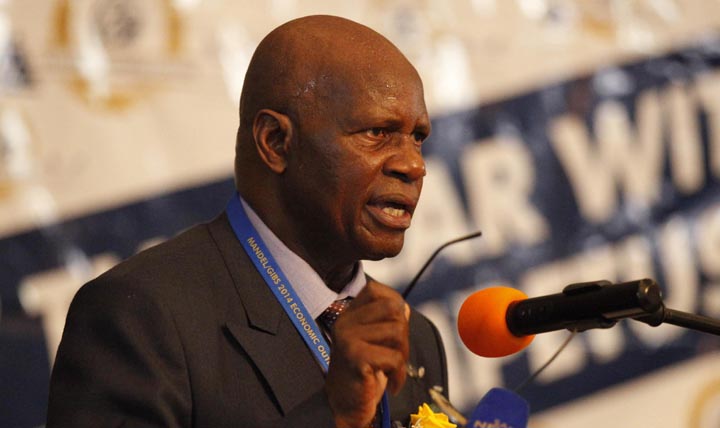
The Sunday Mail

Last week’s endorsement of Zimbabwe’s debt clearance strategy by international creditors in Lima, Peru is one of the most important moments in the country’s financial history, Finance Minister Patrick Chinamasa has said.
Minister Chinamasa yesterday spoke to The Sunday Mail from Lima, saying Zimbabwe had made a major breakthrough after convincing multilateral financiers to accept the country’s strategy.
For over 15 years, Zimbabwe has failed to address its debt headache, which is a major impediment to economic development, because of sour relations with lenders like the IMF.
But after the step forward in Peru’s capital, the country is firmly back on track to enter the global financial highway by negotiating lines of credit with international creditors.
Such funding, which is offered at low interests rates over long repayment periods, will unlock capital to enhance productivity in key sectors such as agriculture, mining and manufacturing as well as boosting infrastructure development.
President Mugabe’s State of the Nation address and 10-Point Economic Growth Plan pronounced that Government would re-engage lenders.
Zimbabwe owes US$110 million to the IMF, US$1,15 billion to the World Bank and US$601 million to the African Development Bank.
Zimbabwe’s total external debt is about US$10 billion.
Minister Chinamasa said the reengagement was worth celebrating.
“This is a major breakthrough in the financial history of the country. The developments in Lima are the first important milestone and serious step towards resolution of the debt arrears clearance and the efforts to address the debt overhang of the country, which is an albatross around efforts to recover the economy.
“It is worthy celebrating as it will open doors for the country to obtain the much needed long term capital needed for total economic transformation.”
Reserve Bank of Zimbabwe Governor Dr John Mangudya weighed in saying the endorsement from international financial institutions (IFIs) would improve the country’s credit rating.
“It means that once we get access to the funding, the cost of doing business will be much easier. Also if you get any endorsement from these institutions, it means that other financial institutions in the world will also endorse you. It means that we are now an attractive destination for money because out credit risk and rating has received a boost.”
Minister Chinamasa said new debt would unlock capital for the country’s economy.
“In the event that debt arrears to the IFIs are cleared, Treasury’s expectation is that the productive sectors of the economy will access cheaper finance from offshore lenders as the country risk is reduced. Treasury will undertake debt sustainability analysis to ascertain the appropriate level of new debt that the economy can sustain.”
Minister Chinamasa said the strategy presented in Lima was a homerown solution crafted by Government.
Dr Mangudya chaired the External Debt Clearance Committee which worked tirelessly to produce a credible document acceptable to IFIs.
Some critics of the Bretton Woods institutions have expressed reservations about the engagements with the IMF, suggesting that their policies could hurt Zimbabwe more.
Minister Chinamasa yesterday responded saying clearing the country’s debt was of uttermost priority.
“The IFIs did not prescribe the timelines for the arrear clearance process. The deadline to clear the arrears by the end of April 2016 has been determined by us and not dictated to us by anyone.
“This is feasible in view of the repayment arrangements being put in place by the Arrears Clearance Committee.
“What we are talking about is debt and not an IMF programme. People get it wrong. There is a difference. It is about clearing Zimbabwe’s debt arrears to enhance the re-engagement process and to unlock new long term funding for the country to unleash economic growth that is critical to enhance empowerment and reduction of poverty. People should not get it wrong.”



